PMR/F Biographies
Stephanie Ajuzie, MD
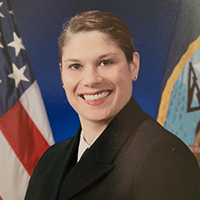
Preventive Medicine Resident
Desired type of placement: Federal
Learning goal for the year: To utilize applied epidemiology, program evaluation, and policy analysis skills learned through my MPH degree, as well as build skills in program administration and grant proposal and evaluation.
Background: Stephanie has volunteered across the world, teaching in the Federated States of Micronesia (FSM); training Village Health Teams in Uganda; and completing a field assignment for the Military Tropical Medicine Program in Peru. Her interest in Preventive Medicine was first kindled in the FSM, where she later conducted a curriculum in hand hygiene to students while also volunteering at the local hospital. After her commission with the US Navy, Stephanie attended medical school at Georgetown University School of Medicine, earning her MD in 2017. She has spent the last several years working as a trained Naval Flight Surgeon, using contact tracing, education outreach, vaccination, and policy development to handle the COVID-19 pandemic. She is currently completing her Master of Public Health (MPH) at the United Services University of Health Sciences (USUHS) and has interests in infectious disease, global health, emergency preparedness and response, cancer prevention, breastfeeding outcomes, and health disparities.
Jane Baumblatt, MD
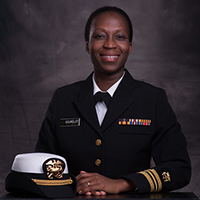
Preventive Medicine Resident
Desired type of placement: Federal or Local – CDC or DMV area
Learning goal for the year: I am completing my Master of Public Health (PH) with a focus in Health Policy at the Uniformed Services University and becoming board certified in preventive medicine. Starting this program with a background in epidemiology, I am expanding my knowledge base into the policy arena with the goal of coming out a more well-rounded public health practitioner and leader.
Background: Prior to joining the program, Jane served as Medical Officer Team Lead in the Division of Epidemiology at the FDA’s Center for Biologics Evaluation and Research, working on vaccine safety and surveillance, including Covid-19 vaccines, and as pharmacovigilance reviewer for licensing applications. Prior to that, she was Chief Medical Officer for Research at the NIH’s National Institute of Allergy and Infectious Diseases, Division of AIDS where she oversaw HIV vaccine clinical trials. As a board-certified Internist, she practices at the Walter Reed National Military Medical Center, Internal Medicine resident clinic. As a CDC Epidemic Intelligence Service (EIS) officer assigned to the Tennessee Department of Health, she had the privilege of leading outbreak investigations, learning data analysis skills, and how to think critically about public health problems. Highlights include a bed bug investigation in an office building and an outbreak of fungal infections of the central nervous system following epidural/paraspinal steroid injections in patients exposed to steroids from a compounding pharmacy. Jane holds a Bachelor of Art in French Cultural Studies from Wellesley College, and an MD from Yale University School of Medicine. She enjoys traveling and spending time with family.
Meagan Chuey, PhD, CNM, RN
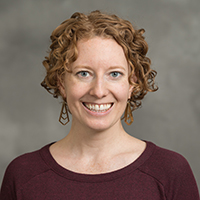
Preventive Medicine Fellow
Assignment: Michigan Department of Health and Human Services, Lansing, MI
Learning goal for the year: I hope to augment my EIS experiences with a focus on strengthening my policy development and program administration skills.
Background: Meagan is a Certified Nurse Midwife with a PhD in Nursing and has worked as a pediatric emergency room nurse in Detroit and as a midwife in the Bronx. Her dissertation work focused on reproductive decision-making in women experiencing major life stressors and included conducting interviews with women from Syria who resettled as refugees in Michigan. As an Epidemic Intelligence Service (EIS) Officer split between the County of San Diego Epidemiology Program and the CDC’s US-Mexico Unit, Meagan was able to participate in outbreaks and investigations at both the local and federal levels, frequently alongside state and international partners, providing a unique perspective on collaborative public health practice. She has extensive clinical and research experience in maternal and child, reproductive, and binational, migrant, and refugee health.
Esther Kukielka, PhD, DVM, MSc

Preventive Medicine Fellow
Assignment: Pan American Health Organization, Washington, DC
Learning goal for the year: I hope to improve my program administration skills, develop or analyze evidence-based health policy, and be engaged in executive and leadership activities while working towards an improved, stronger, more collaborative public health that will provide health for all.
Background: Esther earned her DVM and MSc in Europe, and her PhD in Epidemiology in California. During this time, she worked as a veterinarian; studied wildlife/livestock interactions to inform disease control strategies; developed, implemented, and analyzed a questionnaire to alleviate the burden of a devastating swine disease in Uganda; and worked with the government of Peru in modelling disease spread scenarios. Once she left academia, Esther worked at the CA Department of Public Health understanding patient sharing networks in the context of antimicrobial resistant pathogens. Shortly thereafter, she joined the CDC as an EIS Officer, where she co-led a gas pipeline explosion EpiAid; evaluated the Amyotrophic lateral sclerosis registry; and provided analytical and data visualization support to the COVID and Ebola responses. California-born, Spain-raised, Esther has worked and lived in nine different countries which has taught her the importance of cultural factors in understanding, accepting, and adhering to rules and recommendations. Esther is fluent in English, Spanish, and French.
Grace Vahey, DVM, MPH
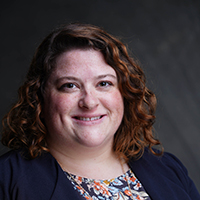
Preventive Medicine Fellow
Assignment: Cobb & Douglas Public Health, Marietta, GA
Learning goal for the year: I hope to gain experience in state or local public health, specifically building skillsets in public health decision making, program development, leading interdisciplinary teams, and communication.
Background: Grace earned her DVM and MPH at the University of Georgia. During her veterinary and public health education Grace was fortunate to have opportunities to work on One Health projects involving groups that have been historically marginalized which demonstrated to her how public health impacts peoples’ lives. After veterinary school, Grace worked as a small animal emergency veterinarian for two years where she strengthened her critical thinking and communication skills. As an EIS officer assigned to the CDC Arboviral Diseases Branch, she has had a wide breadth of experiences, including planning and leading a serosurvey for Powassan virus in New Jersey, analyzing nationwide surveillance data for La Crosse virus disease, participating in multiple COVID-19 field deployments, and leading an investigation of risk factors for hospitalization among persons with COVID-19 in Colorado.
Kate Varela, DVM, MPH
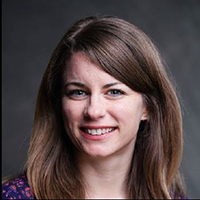
Preventive Medicine Fellow
Assignment: One Health Office, CDC
Learning goal for the year: I hope to gain experience in program administration and evaluation during the Preventive Medicine Fellowship that will complement my background in policy and epidemiology.
Background: As a veterinarian with a specialty in preventive medicine and public health, Kate’s interests lie at the intersection of human and animal health, specifically in infectious and zoonotic diseases. She spent two years with CDC’s One Health Office working with partners across CDC as well as state, federal, and international partners on a variety of projects related to zoonotic disease prevention. As an EIS Officer assigned to the National Institute for Occupational Safety and Health, Kate has had a breadth of experiences from investigating an outbreak of tuberculosis among zookeepers to deploying to Ghana for Polio and supporting CDC’s COVID-19 Response. Prior to CDC, she conducted surveillance as a field Veterinary Medical Officer for the U.S. Department of Agriculture. She also served as an American Association for the Advancement of Science (AAAS) Congressional Fellow where she worked on education, environment, agriculture, and health policy for a U.S. Senate office.
LCDR Howard Chiou, MD, PhD
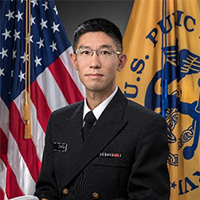
Preventive Medicine Resident
Assignment: Immunization Systems Branch, Global Immunization Division, CDC
Learning goal for the year: My goal is to broaden my skillset for public health leadership, policy development, and program administration. I’m particularly interested in learning how federal public health interfaces with other governments, organizations, and healthcare systems to advance the health of communities.
Background: An anthropologist and physician, Howard was assigned as an Epidemic Intelligence Service (EIS) Officer to Los Angeles County, where he worked in acute communicable disease control. As part of the COVID-19 response, he led an innovation team that created a public text-message symptom reporting system and automated hospital case reporting in Los Angeles County, and led the establishment of a new behavior change unit within the CDC response. His outbreak experiences include hepatitis C in a clinic, mumps in a central jail, and deploying to provide anthropological methods towards control of acute rheumatic fever in American Samoa. Howard’s prior research focused on culture change and teamwork within hospitals internationally. He is the recipient of multiple teaching awards, and has been invited to deliver workshops for local public health departments on design thinking and effective scientific presentations. Before joining the CDC, Howard worked as visiting faculty at Stanford University on a national positive deviance study of intensive care units. He is a graduate of the MD-PhD program in anthropology at Emory University, and completed a transitional program at Santa Clara Valley Medical Center, a Stanford-affiliated county hospital.
LCDR Howard Chiou, MD, PhD

Preventive Medicine Resident
Assignment: One Health Office, CDC
Learning goal for the year: My goal is to broaden my skillset for public health leadership, policy development, and program administration. I also have an interest in learning how federal public health interfaces with other governments, organizations, and healthcare systems to advance the health of communities.
Background: An anthropologist and physician, Howard was assigned as an Epidemic Intelligence Service (EIS) Officer to Los Angeles County, where he applied qualitative, quantitative, and implementation expertise towards outbreak control and policy development. His outbreak experiences range across leading an investigation of hepatitis C in a clinic, developing risk assessment tools for measles, and deploying to provide anthropological methods towards control of acute rheumatic fever in American Samoa. Howard’s prior research focused on culture change and teamwork within hospitals internationally. He is the recipient of multiple clinical teaching awards, and has been invited to deliver workshops for local public health departments on design thinking and effective scientific presentations. Before joining the CDC, Howard worked as visiting faculty at Stanford University on a national positive deviance study of intensive care units. He is a graduate of the MD-PhD program in anthropology at Emory University, and completed a transitional program at Santa Clara Valley Medical Center, a Stanford-affiliated county hospital.
LCDR Rebecca Free, MD
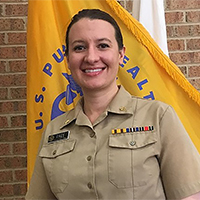
Preventive Medicine Resident
Assignment: Mycotic Diseases Branch, National Center for Emerging and Zoonotic Infectious Diseases, CDC
Learning goal for the year: I aim to improve my skills in biostatistics and epidemiology through MPH degree coursework and to further broaden my knowledge of policy development and overall federal-level public health through a CDC clinical practicum, ideally at a host site within infectious diseases.
Background: Rebecca joined CDC in 2015 following her residency training in Internal Medicine/Pediatrics at Case Western University. At CDC, she worked on the Ebola and Zika responses as a Medical Officer. During these responses, she responded to inquiries from clinicians and state health departments; procured and distributed needed supplies; interpreted epidemiologic data related to Zika virus transmission; helped develop guidance related to Zika virus exposure; and abstracted medical records in the field to support a newly established surveillance system for pregnant women diagnosed with Zika virus. These experiences inspired her to apply to CDC’s Epidemic Intelligence Service (EIS). As an EIS officer at the Nebraska Department of Health and Human Services she investigated outbreaks at hospitals, childcare facilities, commercial kitchens, and a petting zoo. She is currently pursuing an MPH degree.
CDR David Jackson, MD
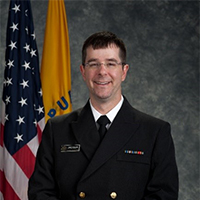
Preventive Medicine Resident
Assignment: Cobb & Douglas Public Health, Marietta, GA
Learning goal for the year: I hope to improve my analytic skills through the pursuit of an MPH degree and gain additional program management, policy development, and leadership skills while working at a state or local health department.
Background: David worked as a Peace Corps Volunteer in Côte d’Ivoire to improve access to safe drinking water and proper sanitation and to expand a Prevention of Mother to Child Transmission of HIV Program as an intern in Zambia. He completed a combined residency in internal medicine and pediatrics before accepting a position on the Navajo Reservation as a medical officer with the Indian Health Service (IHS). He managed the medical benefits of responders and survivors with health effects related to the 9/11 terrorist attacks. As an EIS officer assigned to the National Institute for Occupational Safety and Health, he led multiple health hazard evaluations across the country as a part of an investigation of a wide variety of work-related biological and chemical hazards and exposures.
LT Erin Blau, DNP, MPH, RN
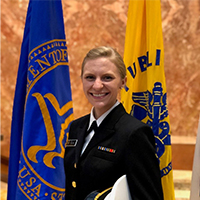
Preventive Medicine Fellow
Assignment: Infant Outcomes Monitoring, Research, and Prevention Branch; National Center for Birth Defects and Developmental Disabilities, CDC
Learning goal for the year: I hope to expand my local and state public health experience. I want to focus on enhancing my program management and leadership skills through thoughtful partnership building and to better understand federal grant writing and policy development.
Background: Erin worked as a public health nurse at local health departments. She gained experience in communicable disease control and HIV/hepatitis C virus (HCV)/opioid overdose prevention. She oversaw outreach on HIV/HCV testing and linkage to care programs, as well as developed, implemented, and evaluated the county’s first syringe service program. She worked as a provider in a family planning/STD clinic and oversaw the county’s gonococcal reduced antimicrobial susceptibility surveillance. As an EIS officer at the Kentucky Department for Public Health, Erin led outbreak responses and investigations including a multi-state HIV outbreak among people who inject drugs, a multi-state outbreak of vaccination-associated non-tuberculous mycobacterium infections, an E. coli O103 outbreak, and an assessment of possible health effects following a natural gas pipeline explosion. She earned a doctoral degree in nursing practice and a master’s degree in public health in epidemiology from the University of Colorado.
LT Yaritbel Torres-Mendoza, DVM, MPH
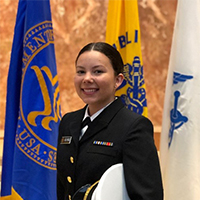
Preventive Medicine Fellow
Assignment: Outbreak Response and Prevention Branch, National Center for Emerging and Zoonotic Infectious Diseases, CDC
Learning goal for the year: I hope to become proficient in program implementation, management, and evaluation while strengthening my leadership and communication skills.
Background: Yaritbel collaborated with Veterinarians Without Borders implementing training tools to mitigate the effects of zoonotic and transboundary animal diseases in Ethiopia. As an Epidemic Intelligence Service (EIS) Officer, Yaritbel worked on a breadth of topics including carbon monoxide poisoning, mental health, rabies, brucellosis, healthcare-associated infections, dengue, and syphilis. She also participated in a comparative pathology fellowship at Wake Forest Medical school where she worked with non-human primates as a model to study endometriosis. Additionally, she learned about international veterinary medicine and public health issues while doing clinical rotations in Brazil, Indonesia, and New Zealand. Yaritbel earned a doctoral degree in veterinary medicine and a master’s degree in public health from the University of Georgia.
Genevieve Bergeron, MD, MPH

Preventive Medicine Resident
Assignment: Vital Strategies, New York, NY
Learning goal for participating in the Preventive Medicine Residency: I hope to continue my development as a public health professional and gain experience with public health programming, policy and management.
Background: Genevieve trained in internal medicine and practiced as a hospitalist for 4 years at Cambridge Health Alliance. She was involved in substance use research, quality improvement, and medical education. As a CDC EIS Officer assigned to the New York City Department of Health and Mental Hygiene, She developed a program tracking the novel antimicrobial resistant fungus Candida auris in the community setting; lead an analysis on social determinants of health; investigated varied clusters from foodborne botulism to suicidal ideation and behavior; and deployed to the Democratic Republic of Congo to assist with the international response to an Ebola epidemic. She earned a medical degree from Université Laval and a master’s degree in public health in environmental occupational health from Harvard School of Public Health.
LCDR Rebecca Free, MD
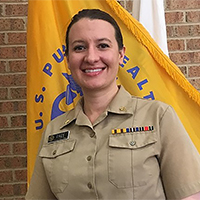
Preventive Medicine Resident
Assignment: MPH Student, Uniformed Services University, Bethesda, MD
Learning goal for participating in the Preventive Medicine Residency: I aim to bolster my skills in biostatistics and policy development and broaden my knowledge of trends in public health through coursework and the clinical practicum.
Background: Rebecca joined CDC in 2015 following her residency training in Internal Medicine/Pediatrics at Case Western University. At CDC, she worked on the Ebola and Zika responses as a Medical Officer. During these responses, she responded to inquiries from clinicians and state health departments; procured and distributed needed supplies; interpreted epidemiologic data related to Zika virus transmission; helped develop guidance related to Zika virus exposure; and abstracted medical records in the field to support a newly established surveillance system for pregnant women diagnosed with Zika virus. These experiences inspired by her to apply to CDC’s Epidemic Intelligence Service (EIS). As an EIS officer at the Nebraska Department of Health and Human Services she investigated outbreaks at hospitals, childcare facilities, commercial kitchens, and a petting zoo.
CDR David Jackson, MD
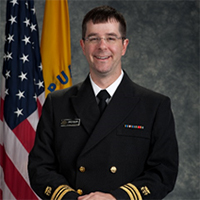
Preventive Medicine Resident
Assignment: MPH Student, Uniformed Services University, Bethesda, MD
Learning goal for participating in the Preventive Medicine Residency: I hope to continue to improve my analytic skills through the pursuit of an MPH and then gain additional program management, policy development, and leadership skills while working at a state or local health department.
Background: David served as a Peace Corps volunteer working to improve access to safe drinking water and proper sanitation in Côte d’Ivoire and to expand the Prevention of Mother to Child Transmission of HIV Program while serving as an intern in Zambia. He completed a combined residency in internal medicine and pediatrics before accepting a position on the Navajo reservation as a medical officer with Indian Health Services (IHS). Following his time with IHS, he helped manage the medical benefits of responders and survivors with health effects related to the 9/11 terrorist attacks. He served as an EIS officer assigned to the National Institute for Occupational Safety and Health and led multiple health hazard evaluations in work places across the country to investigate a wide variety of work-related biological and chemical hazards and exposures.
Neil Chandra Murthy, MD, MPH, MSJ
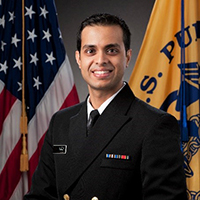
Preventive Medicine Practicum Resident
Assignment: CDC Morbidity and Mortality Weekly Report (2019)
Learning goal for participating in the Preventive Medicine Residency: I want to obtain practical skills in improving population heath by learning how to strategically build multisectoral partnerships; engage with community leaders; effectively communicate to lay audiences through the media; critically evaluate health trends; conduct timely needs assessments; and respond to infectious and chronic disease health threats.
Background: During his experience as an Epidemic Intelligence Service (EIS) officer with CDC’s National Center for Immunization and Respiratory Diseases, Immunization Services Division, Neil evaluated trends in vaccination coverage and worked with immunization programs across the nation. He investigated a mumps outbreak in Seattle, WA, and he participated in the CDC Zika virus response. Prior to EIS, he completed his graduate studies in journalism, where he learned how to effectively communicate public health issues through health and science reporting. During public health and medical school, he helped conduct a digitized disease surveillance project at the world’s largest mass gathering (2013 Kumbh Mela, India). He also helped develop World Health Organization guidelines on protection from chemical and aerial attacks for use among Syrian civilians. During his intern year in emergency medicine, he developed tabletop exercises to train local health departments in North Carolina on how to detect and respond to an incident case of Ebola.
Anindita Nanda Issa, MD

Preventive Medicine Fellow
Assignment: Georgia Department of Public Health and Children’s Healthcare of Atlanta
Learning goal for participating in the Preventive Medicine Fellowship: I want to solidify my foundation in biostatistics with coursework and enhance my practical experience with program evaluation, policy development, and grant writing skills.
Background: Anindita completed an anatomic pathology residency at Emory University followed by a forensic pathology fellowship at the Fulton County Office of the Chief Medical Examiner. After taking a personal sabbatical to raise her children, she decided to redirect her career to public health. She worked in a local medical clinic as the Director of Preventive Medicine on projects to maximize preventive medical care for patients with chronic diseases. She worked in the Fulton County Health Department on a project to enhance diabetes prevention education in high school students via a mobile app. As a CDC Epidemic Intelligence Service (EIS) assign officer, assigned to CDC’s National Center for Environmental Health, she evaluated a disaster-related mortality system in Oklahoma; conducted community assessment for public health emergency response for a Zika preparedness in the United States Virgin Islands; and worked on the 2017 hurricane response in the Emergency Operations Center. She has experience in disaster mortality surveillance and expertise in medicolegal death investigation. She earned a medical degree from Medical College of Virginia in 2007.
Sally Ann Iverson, DVM, MPH
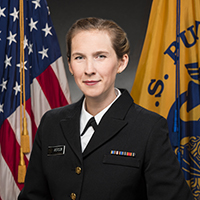
Preventive Medicine Fellow
Assignment: Arizona Department of Health Services
Learning goal for participating in the Preventive Medicine Fellowship: I want to learn about the implementation and evaluation of programs, policies, and CDC grants at the state level.
Background: Sally worked for the U.S. Department of Agriculture as a veterinary medical officer at the Plum Island Animal Disease Research Center, which performs research, diagnostics, and training on high-consequence infectious diseases of livestock. During her experience as an Epidemic Intelligence Service officer assigned to the Arizona Department of Health Services and Maricopa County Department of Public Health, she participated in diverse field experiences including a community-wide outbreak of cryptosporidiosis in recreational water; a cluster of acute flaccid myelitis in pediatric patients; a hepatitis A outbreak among persons experiencing homelessness; and Rocky Mountain spotted fever prevention in American Indian communities. She learned how public health practice is coordinated through the federal, state, and local levels and how she can apply the principles of one health within these systems. She earned a doctoral degree in veterinary medicine from Cornell University and a master’s degree in public health from Johns Hopkins Bloomberg School of Public Health with a focus on infectious diseases and epidemiology.
Tolu Adebanjo, MD, MPH
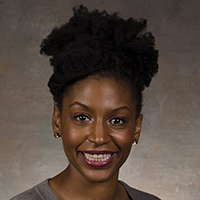
Preventive Medicine Resident
Assignment: Florida Department of Health in Orange County and Orlando Health
Learning goal for participating in the Preventive Medicine Residency: I want to learn more about the practice of public health, including the collaboration with healthcare delivery systems and community and advocacy organizations, and build upon my policy development, program evaluation, and leadership skills.
Background: During her experience as an Epidemic Intelligence Service officer, Tolu participated in diverse public health experiences, including implementing a pneumococcal carriage study; analyzing pneumococcal vaccine failures in children; investigating an invasive group A Streptococcus outbreak among persons experiencing homelessness; and developing guidance for infants with possible congenital Zika virus infection. During her pediatric residency, she was able to pursue her public health interests – child health and health disparities – while working in an HIV clinic in Swaziland. She participated in patient quality and safety initiatives with the hospital administration, and she saw firsthand how public health and healthcare systems intertwine. As a medical student, she earned a master’s degree in public health to develop a foundation in the principles of public health. She focused her coursework on program development and evaluation, and she collaborated with the local school district to develop a nutrition curriculum.
Neil Chandra Murthy, MD, MPH, MSJ

Preventive Medicine Resident
Assignment: Fulton County Board of Health (2018)
Learning goal for participating in the Preventive Medicine Residency: I want to obtain practical skills in improving population heath by learning how to strategically build multisectoral partnerships; engage with community leaders; effectively communicate to lay audiences through the media; critically evaluate health trends; conduct timely needs assessments; and respond to infectious and chronic disease health threats.
Background: During his experience as an Epidemic Intelligence Service (EIS) officer with CDC’s National Center for Immunization and Respiratory Diseases, Immunization Services Division, Neil evaluated trends in vaccination coverage and worked with immunization programs across the nation. He investigated a mumps outbreak in Seattle, WA, and he participated in the CDC Zika virus response. Prior to EIS, he completed his graduate studies in journalism, where he learned how to effectively communicate public health issues through health and science reporting. During public health and medical school, he helped conduct a digitized disease surveillance project at the world’s largest mass gathering (2013 Kumbh Mela, India). He also helped develop World Health Organization guidelines on protection from chemical and aerial attacks for use among Syrian civilians. During his intern year in emergency medicine, he developed tabletop exercises to train local health departments in North Carolina on how to detect and respond to an incident case of Ebola.
Wollelaw Agmas, MD, MAS
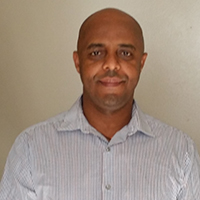
Preventive Medicine Fellow
Assignment: Denver Health
Background: Wollelaw gained experience as a practicing physician for three years. He assisted with the implementation of a national HIV care and support program at the United States Agency for International Development. He worked as a postdoctoral research fellow at the University of California San Diego, Center for AIDS Research. He earned a medical degree from Addis Ababa University in Ethiopia.
Ahmed Kassem, PhD, MBBCh, MPH

Preventive Medicine Fellow
Assignment: Global Immunization Division, Center for Global Health, CDC
Background: Throughout his career, Ahmed gained experience in a wide variety of subject areas including infectious diseases, chronic conditions, and injury prevention. His experience as a CDC Epidemic Intelligence Service officer provided him a with first-hand understanding of how to utilize epidemiology to address real-world public health problems.
Emily W. Lankau, DVM, PhD
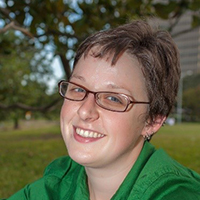
Preventive Medicine Fellow
Assignment: National Wildlife Health Center, U.S. Geological Survey
Background: Emily worked as a veterinary epidemiologist and learned that the complexities of government policies and regulations can make effectively practicing One Medicine incredibly challenging. As an Epidemic Intelligence Service (EIS) officer, she responded to disease events associated with international trade and travel in CDC’s Division of Global Migration and Quarantine. Since completing the EIS program, she worked as a scientific consultant helping clients address health concerns at the human-wildlife interface.
Chidi Obasi, PhD, MBBS, MS
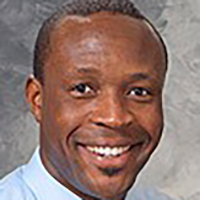
Preventive Medicine Fellow
Assignment: Sabin Vaccine Institute
Background: Chidi worked to gain clinical and research experiences in both developed and developing countries; and defined his passion for disease surveillance, public health leadership and policy initiatives. During his three-year tenure as a National Institutes of Health (NIH)-sponsored postdoctoral primary care research fellow, he was involved in research focused on developing a patient-oriented instrument – the Wisconsin Upper Respiratory Symptom Survey-11 (WURSS-11). This instrument evaluates the severity of symptoms of acute respiratory illness and assess the impact on the quality of life of individuals with acute respiratory illness.
Runa Gokhale, MD

Preventive Medicine Resident
Assignment: DeKalb County Board of Health
Background: Runa joined CDC in 2014 as an Epidemic Intelligence Service officer with the Division of HIV/AIDS Prevention. During her tenure there, she worked with complex survey data from the medical monitoring project and served on the Ebola response team in Nigeria. Prior to CDC, she worked as a hospitalist at the Atlanta VA Medical Center. She has extensive international experience, including work in HIV prevention outreach in Mumbai, India (2002), a clinical rotation in Addis Ababa, Ethiopia (2009), and from 2010-2011 a clinical/research fellowship with University of North Carolina Project-Malawi (UNC Project) in Lilongwe, Malawi. While there, she led two research projects on HIV/Tuberculosis (TB) co-infection and served as a medical advisor to the Lighthouse Clinic and Martin Preuss Center, the two largest HIV clinics in Lilongwe. Runa earned a medical degree from Jefferson College in 2007 and completed her internal medicine residency at Emory University in 2010. She earned a bachelor’s degree in international relations from Brown University in 2002. She is licensed by the Georgia Composite Medical Board and is board certified by the American Board of Internal Medicine.
Jefferson Jones, MD, MPH

Preventive Medicine Fellow
Assignment: Division of Foodborne, Waterborne, and Environmental Diseases, National Center for Emerging and Zoonotic Infectious Diseases, CDC
Background: Jefferson completed the CDC Experience Applied Epidemiology Fellowship in the Division of Tuberculosis Elimination and a residency in pediatric medicine at the University of California San Diego. He served as an Epidemic Intelligence Service officer in Arizona and was involved in the prevention and control of epidemics including Ebola, measles, dengue, Zika, tuberculosis, HIV, and Valley Fever. He earned a medical degree, master’s degree in public health, and a bachelor’s degree in biomedical engineering.
Misha Robyn, DVM, MPH, DACVPM

Preventive Medicine Fellow
Assignment: Division of Foodborne, Waterborne, and Environmental Diseases (DFWED) and One Health Office, CDC
Background: Misha first joined CDC as an Epidemic Intelligence Service officer in 2014 and enjoyed gaining breadth in public health activities at the New York State Department of Health, including working in healthcare-associated infections, hepatitis A, and Q fever. She was deployed twice to Liberia for CDC’s Ebola response. She worked in food safety for the United States Department of Agriculture, Food Safety and Inspection Service, as a supervisory public health veterinarian and an enforcement, investigation, analysis officer before receiving a promotion to a frontline supervisor covering over 40 regulated facilities in Brooklyn and Queens, New York. She followed up on her previous work in Indonesia as a temporary food safety consultant with the United Nations Food & Agriculture Organization. She learned a great deal about public health prevention with CDC’s Preventive Medicine Fellowship in the Enteric Zoonoses Activity in the Division of Foodborne, Waterborne, and Environmental Diseases, working with other federal partners and industry to prevent enteric diseases associated with contact with animals. She earned a doctoral degree in veterinary medicine and a master’s degree in public health from Tufts University. She also earned a Certificate in International Veterinary Medicine working on food hygiene in Nepal and Highly Pathogenic Avian Influenza in Indonesia.
Brenna VanFrank, MD, MSPH

Preventive Medicine Resident
Assignment: Children’s Healthcare of Atlanta, Strong4Life
Background: Brenna participated in the Epidemic Intelligence Service (EIS) before becoming a preventive medicine resident. During her time as an EIS officer, she worked in CDC’s Division of Nutrition, Physical Activity, and Obesity where she focused on obesity prevention through nutrition environment interventions. She earned a medical degree from the University of Wisconsin-Madison, and completed pediatrics training at the University of New Mexico. She earned a master’s degree in public health from the University of Utah.
Jessica Adam, MD, MPH

Preventive Medicine Fellow
Assignment: Division of Healthcare Quality Promotion, National Center for Emerging and Zoonotic Infectious Diseases, CDC
Background: After her internal medicine residency, Jessica performed medical evaluations for asylum seekers. After her chief resident year, she worked with Medecins Sans Frontieres in Uzbekistan, on multi-drug resistant TB and later, in Zimbabwe, where she was responsible for TB activities in a project serving over 5,000 HIV+ patients. In that time, she earned a diploma in tropical medicine, strengthening her interest in diseases impacting resource-poor settings. She spent two years developing a hospitalist program in Riyadh, Saudi Arabia. As an Epidemic Intelligence Service officer assigned to the County of San Diego, she participated in outbreaks involving dengue, bovine TB, infections associated with tattoos and investigations involving Mexican-style soft cheese; deployment to Sierra Leone for Ebola was another highlight. Jessica earned a medical degree and master’s degree in public health from George Washington University.
Almea Matanock, MD
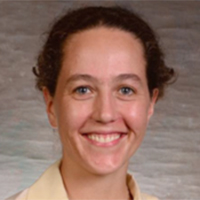
Preventive Medicine Resident
Assignment: University of New Mexico and New Mexico State Health Department
Background: Almea worked to provide access to care for people of different cultures, classes, and geographical regions. She advocated for preventive care and inclusion of all aspects of patients’ environments into their health. She was influenced by a brief time as a nutritionist for Women, Infants, and Children before starting medical school. She worked in Zambia to establish early infant diagnosis of HIV, seen through the challenges faced by pediatric patients and their families both in the U.S. and abroad. She also served as a CDC Epidemic Intelligence Service officer.
Sarah Rhea, DVM, PhD, MPH

Preventive Medicine Fellow
Assignment: North Carolina Division of Public Health
Background: Sarah began work as a veterinarian in small animal practice. In veterinary practice, she developed an interest in emerging infectious diseases and the intersection of human, animal, and environmental health, or “One Medicine”. As a CDC Epidemic Intelligence Service officer assigned to the North Carolina Division of Public Health, her investigations included Legionnaires’ disease outbreaks at multiple long-term care facilities; hepatitis B transmission at a dialysis facility; and a multi-state cluster of severe Mycoplasma pneumoniae infections. She deployed to Texas in support of contact tracing and data management activities during the Ebola outbreak in Dallas. Sarah earned a doctoral degree in veterinary medicine from Purdue University; a doctoral degree in epidemiology; and a master’s degree in public health from the University of North Carolina at Chapel Hill. Her research focused on the use of emergency department visit data for infectious disease and injury surveillance.
Sara Tomczyk, PHN, MSc

Preventive Medicine Fellow
Assignment: Minnesota Department of Health
Background: Sara worked in refugee clinical care and later moved to Ethiopia where she worked in the field of neglected tropical diseases for several years. She then worked as a research fellow at the Institute of Tropical Medicine in Belgium. As a CDC Epidemic Intelligence Service officer, she worked on evaluation projects related to respiratory surveillance, pneumococcal conjugate vaccines, antibiotic resistance and appropriate antibiotic use. In addition, she worked on various investigations including MERS-CoV in Saudi Arabia, a pneumonia cluster among unaccompanied minors at U.S. border shelters, and the Ebola response in Guinea.




